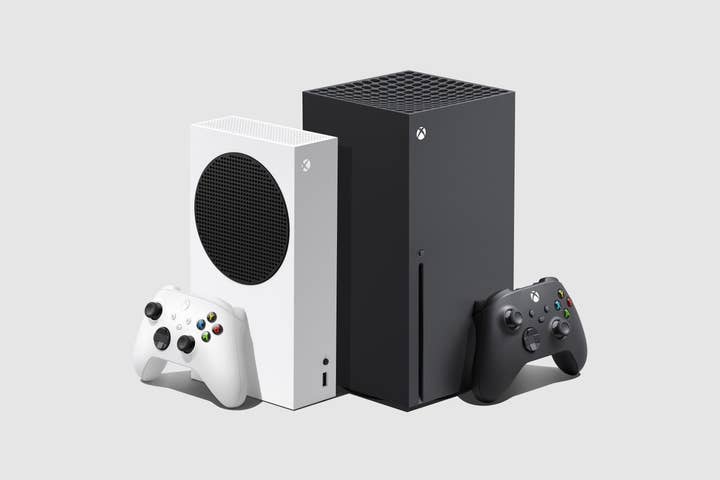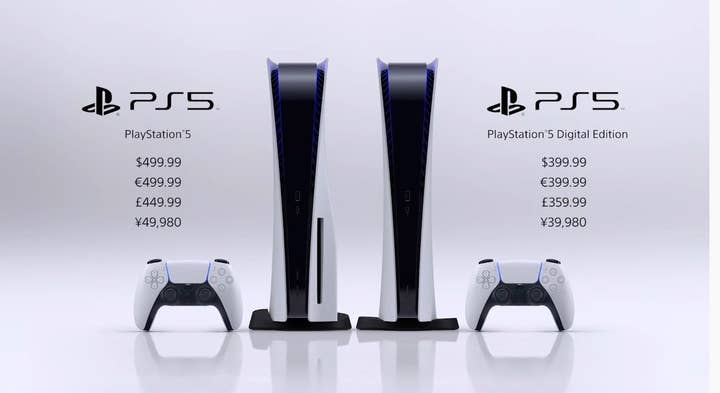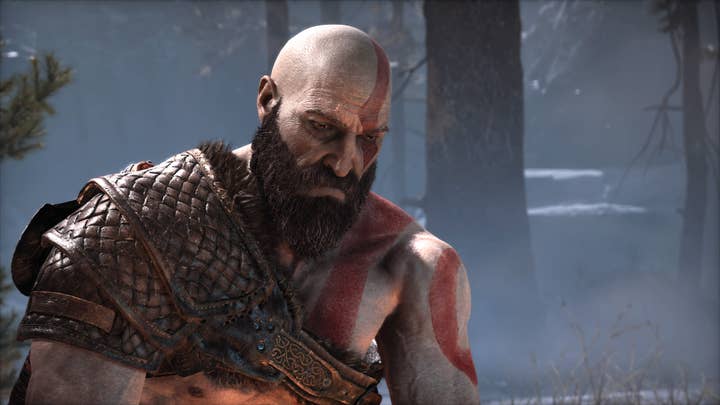PlayStation and Xbox have both failed to sell next-gen | Opinion
A new wave of consoles approaches, but neither platform holder offers a compelling reason to invest at launch
What sells a next-generation console?
Is it the significant leap in visual fidelity, or some other technological advance? Is it the 'killer apps,' the unprecedented games that couldn't possibly run on previous hardware? Is it a competitive price point, one that screams 'must buy' to anyone keen to keep up with the latest and greatest in video games?
The truth is it's all of these and more, and yet it's impossible to shake the feeling that neither PlayStation 5 nor Xbox Series X/S deliver enough to warrant laying down up to $500 this Christmas. Yes, the games media is rife with headlines this morning reporting that PS5 is selling out across all retailers. But it's important to remember a few things.
First, there are always early adopters so invested in the brand or new technology that their pre-order is inevitable. It's hard to imagine a next-generation console that doesn't shift most, if not all, its initial allocation at launch.
Neither PlayStation 5 nor Xbox Series X/S deliver enough to warrant laying down up to $500 this Christmas
Second, we have no idea what the initial allocation for each retailer is, nor how production has been impacted. Just this week, reports emerged that Sony had to scale back due to manufacturing issues -- something the platform holder has since denied. Given the worldwide state of production this year, again due to the pandemic, it's doubtful either device's manufacturing plans have gone unaltered.
Instead, let's consider this from the broader perspective -- as a colleague frequently puts it, the "race to ten million," a key sales milestone that almost always establishes the leader of a console generation. There's no doubt PS5 and the next Xbox(es) both have the potential to reach this milestone in the next year or so, but both may face more of an uphill battle than their forebears.
Let's first address that there are macro factors outside the platform holders' control. There have been no physical games events this year -- no E3, no in-person reveal showcases, no occasions that usually generate hype and interest in a next-gen machine. Instead, Sony and Microsoft have relied on digital presentations, which are inescapably drier and less exciting than a theatre packed full of people.

The bulk of the surrounding information has come primarily through the companies' own channels, messages that are -- as should be expected -- heavily controlled and devoid of criticism. That's fine, that's normal, but what's different in 2020 is the lack of games media or influencers to balance that with objective opinions. We're two months away from the next generation of consoles arriving, and there are little or no hands-on impressions out there. Even last week's unboxing videos of the Xbox Series X and S saw influencers sent shells of the console, rather than the actual device.
Similarly, a lack of events means no chance for consumers to get hands on, to cement purchasing decisions with experience of the next generation. By extension, no chance for word of mouth to spread, for excitement among social circles to perpetuate as friends share their excitement about the upcoming machines.
Last night's revelation that key PS5 titles are also available on PS4 was met with disappointment by many
None of this is Microsoft or Sony's fault, and it presents them with the unenviable task of selling a console without so many of the channels they have relied on in previous generations -- heck, Sony's debut PS5 advert had to be recorded at the actress' home.
Yet even if both platform holders had enjoyed the benefits of a 'normal' year, it would still be hard to see where the benefits for early adopters lie. Last night's revelation that key PS5 titles -- Spider-Man: Miles Morales, Sackboy's Adventure and next year's Horizon Forbidden West -- are also available on PS4 was met with disappointment by many. First-party exclusives are so often a driving factor in someone's decision to purchase a new machine, and the option to acquire them at a slightly reduced price point for a console already in your home is a much more tempting prospect.
The promise of a free next-gen upgrade for these games might sow the seed among players that if they don't buy PS5 this year, they can buy one later. But it seems counterintuitive to offer potential buyers a way to delay their purchase of your new product -- especially with the rate at which 'must have' new games are released. Will those who pick up Miles Morales on PS4 this Christmas really want to replay it next year on PS5 when they are much more likely to have been distracted by whatever more recent releases have launched or been announced?

Microsoft is in an even weaker position here, following the delay of Halo Infinite. The firm now has no exclusive games to entice people towards an Xbox Series X or S, instead relying on third-party titles and the admittedly impressive value of Game Pass. But again, with these third-party titles also available on current generations, the line-up on both versions of the new Xbox still lacks a killer app to drive sales. In terms of software, what do these consoles have that the previous ones don't? It turns out, nothing.
That said, it's worth remembering that Microsoft is not selling a new console generation as platform holders have historically done. It's interested in selling an ecosystem with as many entry points as possible -- whether that's the high-end Xbox Series X, the cheaper Series S, or even a second-hand original Xbox One. Only one company is really trying to convince us that we need their new box now, and that's Sony -- but even then, Microsoft isn't making a great case for its own boxes when they primarily offer titles already available on other machines.
Microsoft is not selling a new console generation as platform holders have historically done
Let's also look at the economics. While not the most expensive consoles to launch, PS5 (the one with the disc drive) and Xbox Series X's $499 price point is still not exactly an impulse purchase or easy Christmas gift. The $299 Xbox Series S might be more appealing, but debate rages as to whether it's even an improvement over or a step back from the Xbox One X -- it certainly isn't a device a current One X owner is likely to upgrade to. Meanwhile, the $399 digital-only PS5 is at a distinct price disadvantage compared to the Series S, especially without an Xbox All Access-style payment plan.
These consoles are all a hefty investment, particularly in the current economic climate, and with so many people having already invested in consoles earlier this year to stave off lockdown boredom, there needs to be more compelling reasons for people to justify such an expense -- at least at launch.
That's not even factoring in the more expensive games being released for them. Sony has now embraced the new $70 price point which -- while perhaps justified by increasing development costs -- has been met with frustration from players and inherently limits their choices further when it comes to purchasing new titles. The fewer games someone can afford for a new device, the less appealing that device becomes. Fine, there'll be a shinier version of Fortnite on both consoles at launch, but people are already playing those on every other device. Do they really need a new $500 box to continue enjoying it?
Perhaps some -- Xbox, at least -- would argue the industry is moving towards the smartphone model. The new iPhone doesn't need to sell the bulk of its total units on day one because it's a product people will pick up throughout its lifecycle. But smartphones are devices used all day, every day and often break down or become redundant in two to three years. On the whole, upgrades are not driven by new functions or software but by necessity -- when your current model has broken or your contract has expired. Traditionally, the console industry doesn't work this way and it would take a major and united shift for that to occur.
All of this leaves a sense that neither console is a must-buy at launch. And yes, their appeal will increase over the years as exclusive titles like Fable and presumably God of War: Ragnarok arrive. Perhaps this is designed to be a slower transition than usual.
But in the here and now, the new console generation looks like it will start with more of a whimper than a bang.

